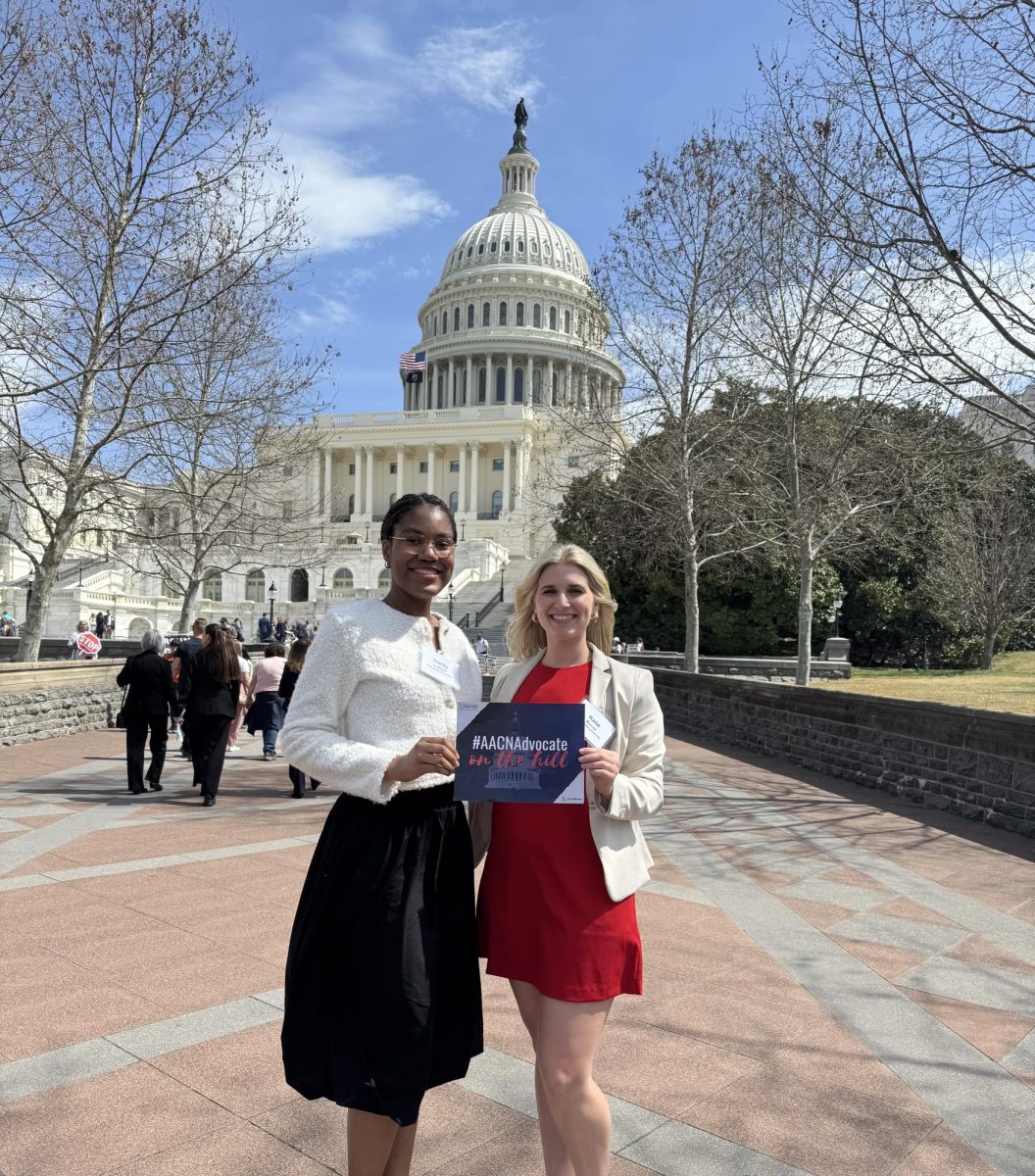Senior nursing students Trinity Rudolph and Katie Murray attended the American Association of Colleges of Nursing’s Student Policy Summit in Washington, D.C., in April 2025. The summit allowed the students to gain a deeper understanding of how healthcare and public policy work together.
During their sophomore year, the two students were in an honors class with Kimberly Cleveland, an associate nursing professor, who introduced them to the opportunity of attending the summit.
“I wanted to get more involved with stuff on campus, and she had introduced me to the policy panel that happens twice a year,” Murray said. “That was kind of the gateway into hearing about the summit and getting to go.”
The summit furthered their interest in learning how federal policy affects nursing while also opening up more job opportunities within the field. Rudolph shared that it gave them a new perspective on how nurses can advocate for legislation that ensures a safe work environment, fair pay and funding for research.
“It got me really interested in policy and law. I realized there was another avenue besides nurse practitioner,” Murray said.
Before college, Murray was torn between studying political science and nursing, while Rudolph had always been interested in pursuing law school. Both students found common ground in wanting to combine politics with nursing and healthcare.
“When I actually went to Capitol Hill, I was like, ‘Wait, I would love this, I’m gonna look into it a little more,’” Rudolph said.
The summit gave them the opportunity to network with different speakers and people from other schools, including Wendell Primus, an economist who worked with Nancy Pelosi, and Alan Wheat, the youngest African American elected to Congress.
“One of the biggest lessons that I learned from all of them was if you want something, just go for it,” Murray said
They also talked to members of Congress and representatives to pass the Precept Nurses Act. This is a bipartisan bill that would provide 2,000 tax credits for nurses who serve at least 200 hours as a clinical preceptor to nursing students, advanced practice nursing students or newly hired licensed nurses in a health professional shortage area.
They met with congressional staff members and presented this bill to them. They were surprised to see that a lot of the people working in the offices were around the same age as them.
“What was eye-opening when we went to Capitol Hill and we went to these offices,” Rudolph said, “[was that] all of the workers were probably like 22 — they were really young.”
The summit showed them how a big part of nursing is advocacy and advocating for change in healthcare.
“A big takeaway with this is [that] you need to remember to advocate outside of those things and be patient with yourself,” Murray said.
One day, Rudolph wants to see a stricter gun policy because nurses often see the aftermath of gunshot wound victims.
After the summit, she is now considering pursuing law school along with a career as a labor and delivery nurse.
Murray plans to work as an emergency room nurse and eventually return to school to earn a master’s degree in healthcare administration.
Both Murray and Rudolph want fellow nurses to recognize that their influence extends beyond hospital walls — that advocacy remains a vital part of the profession.
“Nurses should understand that they’re not bound to just the hospital and their unit and their job,” Rudolph said. “They can advocate for things in the community as well.”
Ava Drozd is a reporter. Contact her at [email protected].


